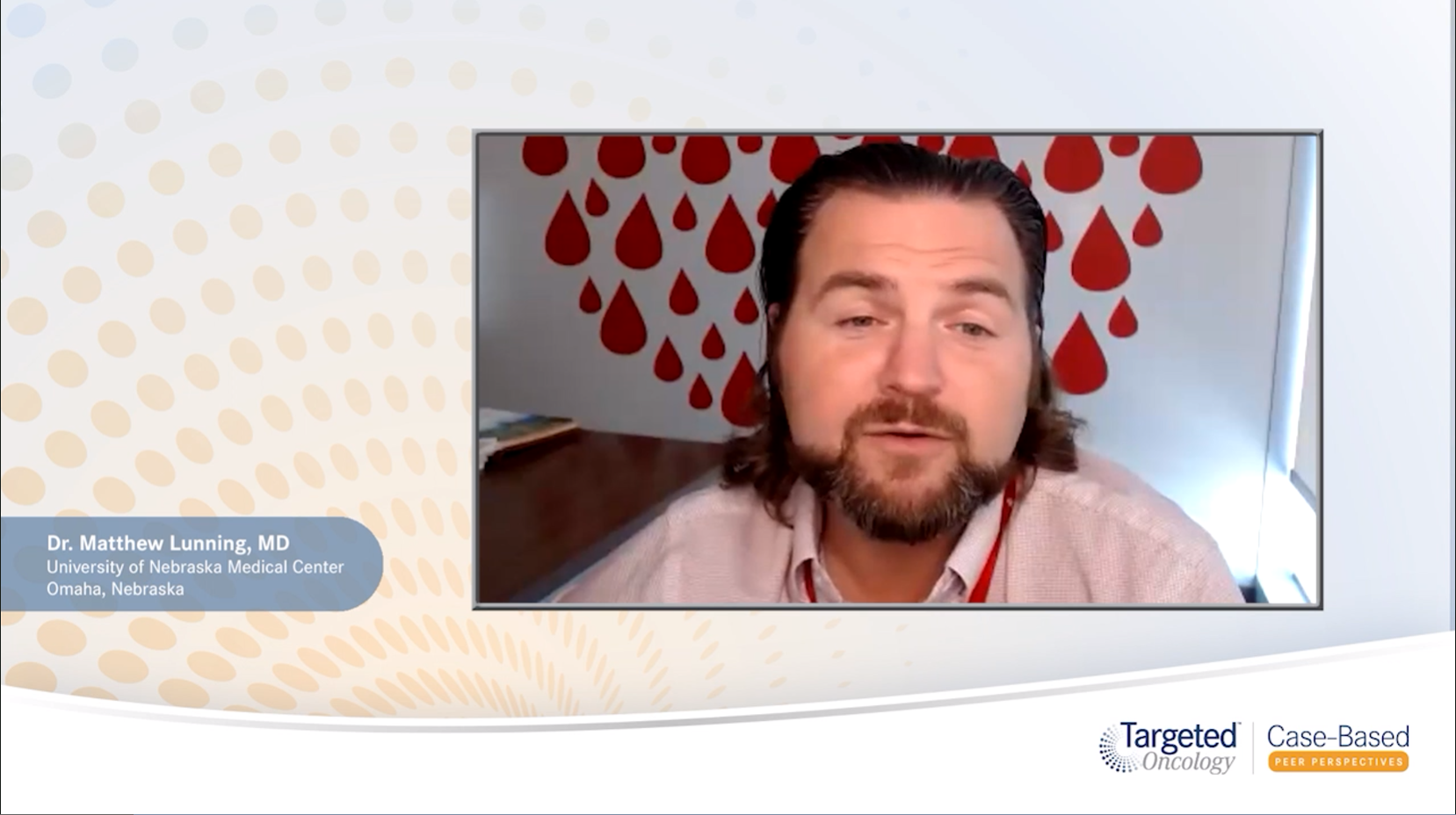Case 1: Relapsed DLBCL, Transplant Eligible
Kami Maddocks, MD:Thank you for joining us for this Targeted Oncology™ Virtual Tumor Board®, which focuses on relapsed and refractory diffuse large B-cell lymphoma [DLBCL]. In today’s presentation, my colleagues and I will review 3 clinical cases. We will discuss an individualized approach to treatment for each patient, and review key clinical trial data that impact our decision.
I am Dr Kami Maddocks, from The Ohio State University [Comprehensive Cancer Center] in Columbus, Ohio. Today, I am joined by Drs Ian Flinn [MD, MPH] from Sarah Cannon Research Institute in Nashville, Tennessee; Loretta Nastoupil from [The University of Texas] MD Anderson Cancer Center in Houston, Texas; and Jason Westin [MD, MS, FACP], also from MD Anderson Cancer Center in Houston, Texas. Let’s get started on our first case.
Loretta Nastoupil, MD:The first case is a 63-year-old [woman] who presents with fatigue and worsening, burning back pain. On physical exam, she’s found to have a left posterior cervical, 1.5-cm node; a right anterior cervical node of 2.5 cm; and a left supraclavicular node of 2 cm.
Imaging is pursued and on CT she’s noted to have multiple enlarged mesenteric and retroperitoneal nodes, the largest measuring 5.3 × 3.1 cm. PET [positron emission tomography] is performed, demonstrating hypermetabolic adenopathy above and below the diaphragm with the highest SUV [standardized uptake value] max of 25.
A biopsy is pursued and confirms diffuse large B-cell lymphoma. Immunohistochemistry is positive for CD20; CD10; BCL6, BCL2, including 50% of cells; MYC is positive in over 90% of cells and IHC; and KI67 is 85%. Additional labs demonstrated normal CBC [complete blood count], and LDH [lactate dehydrogenase] is greater than 1.5 × the upper limit of normal.
Kami Maddocks, MD:In this patient, we have a stage III or advanced stage patient with an aggressive B-cell lymphoma, appears to be germinal center type, overexpression of BCL2 and C-MYC by immunohistochemistry, although we don’t have FISH [fluorescence in situ hybridization] results at this time. The patient has a high intermediate IPI [International Prognostic Index], and an intermediate CNS [central nervous system] IPI. Looking at this patient, what are the therapeutic options at this point?
Loretta Nastoupil, MD:R-CHOP [rituximab, cyclophosphamide, doxorubicin hydrochloride, vincristine sulfate, and prednisone] is generally our backbone of therapy. There are patients that we have cautious optimism surrounding the outcomes of R-CHOP. Particularly in this case, the features that I’m concerned about are the double expression of MYC and BCL2. I’d like to know the FISH results to know that this is a double hit in addition to a double expressor, because I know those patients are likely to do quite poorly with R-CHOP–based therapy. … I might pursue something more aggressive, or clinical trials—that is an option for me.
Jason Westin, MD, MS, FACP: I would agree with Dr Nastoupil on that. We know the double expressors are often the nonterminal center subtype. This patient’s a germinal center subtype, and that would raise my concern that this could be an expression on protein because there could be translocations. It’s difficult to know without the FISH if it is a double hit. You can’t tell, you need to have FISH results, but that would raise my concern that this could be a potential translocation-defined overexpression.
Kami Maddocks, MD: It sounds like … we feel R-CHOP is still the standard, but there is some concern in this patient that we may be looking at a double hit. We don’t have the FISH results.
Transcript edited for clarity.
Zilovertamab Vedotin/R-CHP Elicits High Complete Response Rate in DLBCL
Published: December 8th 2024 | Updated: December 8th 2024The addition of zilovertamab vedotin to R-CHP (cyclophosphamide, doxorubicin, prednisone, rituximab) resulted in a 100% complete response rate in patients with previously untreated DLBCL.
Read More









